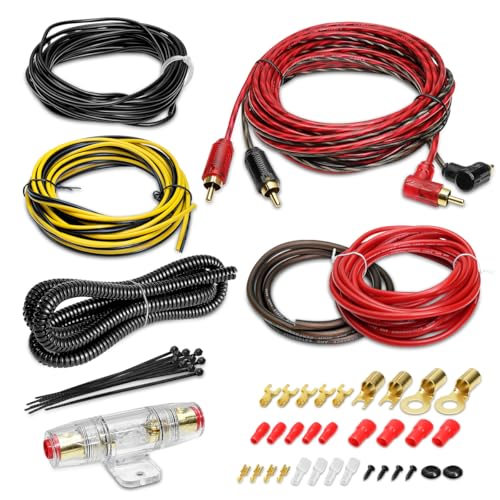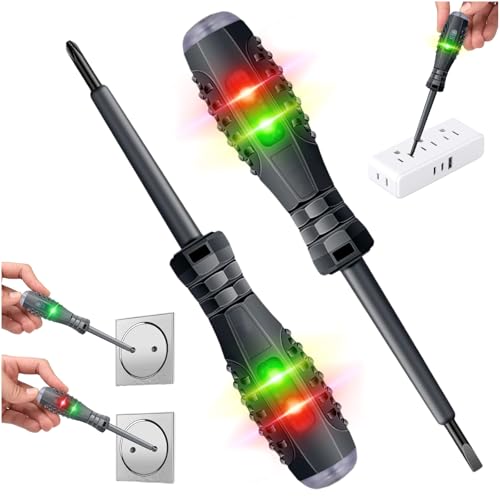Twenty odd years ago we had Halon systems where I worked. I recall that had an, "evacuate immediately", alarm system.
You are using an out of date browser. It may not display this or other websites correctly.
You should upgrade or use an alternative browser.
You should upgrade or use an alternative browser.
Fire Extinguishers
- Thread starter Mrjmegson
- Start date

Help Support Talk Electrician Forum:
This site may earn a commission from merchant affiliate
links, including eBay, Amazon, and others.
Mrjmegson
Well-known member
Definitely wouldn't be able to breath in that.
- Joined
- Mar 28, 2008
- Messages
- 14,663
- Reaction score
- 1,364
Definitely wouldn't be able to breath in that.
You would breath........................................................
But not for very long!!!!!!!!!!!!!!!
Mrjmegson
Well-known member
Lol. Hopefully you'd at least have a funny voice, like helium, so you could go out laughing.
Can i give you some advice???? I would not give a **** what ANY supplier said, as all they are interested in is selling you stuff. ASK THE FIRE BRIGADE. or ask the good people of Grenfell..Not a daft question at all, and the answer is no, my first port of call was this forum, but now I've realised the complexities of it, thanks to you, I've contacted a supplier to see what they say about the capacity issue.
That's cool, I'll buy a CO2 extinguisher for now for any possible inverter fires, and try to sort this lithium issue.
Thanks for your advice,
Jay
There is such a thing as a fire "triangle" you see..
You need THREE things for a fire, fuel, oxygen, and heat. You remove any one, and out goes the fire....
Now, an electrical fire, you cannot use water, [due to the shock risk] Other than that, water is the best fire fighting agent there is, end off.
The problem you have with CO2 is that, on a fire with solid combustible materials like wood or paper etc, they simply WILL NOT WORK.. They are for liquid fires ONLY..
As soon as the CO2 is gone, it will light straight back up.. [besides, what you going to breath in the mean time??]
Dry powder would be the one to have, bit messy, but so is a burnt down house..
BCF was banned so you cannot get one if you wanted..
So far as i am concerned, it is a matter of time before the building regs are changed and batteries will have to be stored in a brick building away from the main building, matter of time...
Only a PROPER idiot [the same sort of idiot that clads blocks of flats in combustible plastic panels] would have the things in a house..
Money talks you see, NOBODY is interested in YOUR safety., not in the least..
Grenfell.... Seen anyone in jail yet??? Even though the makers said the stuff MUST not be used above 5 floors high i think it was. How simple can it be... Money = EVERYTHING Your life = NOTHING..
Ask the fire brigade and get the batteries outside..
What about a mini sprinkler system?? Could you use the sort of system a racing car uses?? Be even better if it worked on water..
john..
Best post i have ever read i think!I had a first hand experience of CO2 in operation, not on batteries but on a Rolling Mill in USA that I was involved with programming.
This was a cold rolling process which kerosine is used as a lubricant in a fine mist. The pressure between the rolls is sufficient to cause combustion but the rolls dissipate the heat. That is until a cobble occurs when the sheet material creases / tears etc. Then you have an instant major fire.
View attachment 14431
The fire can be seen straight ahead and coming out of the left hand part of the mill. The body is my boss legging it. I stayed behind with the mill operator to initiate the fire suppression.View attachment 14432
Thats $50,000 of CO2 being dispensed
View attachment 14433
You can see being heavier than air it lingers. It was quite a problem for escape, we couldn't leave the pulpit without going through the CO2, we were rescued later with breathing apparatus from the USA Fire Brigade.
john..

£779.00
Davlex Large 108 Litre Commercial Electric Convection Oven Double Fan YXD-6A Bake Roast Browning
Davlex Catering Equipment

£18.57
Rail for PV Solar Panel Installation Includes End Clamp and Middle Clamp (Set 1(For 30mm))
KA KE LI MAO YI

£5.99
£7.99
2-in-1 High Torque Strong Magnetic Screwdriver Electricity Detector, Electrical Screwdriver Electrical Tester,Voltage Tester Screwdriver for Electrician Tools (2Sets)
Shenzhen Xudu E-commerce Co Ltd

£249.99
Davlex four 4 pot baine marie large tank 32 litre soup food doner sauce warmer commercial electric
Davlex Catering Equipment

£18.58
Rail for PV Solar Panel Installation Includes End Clamp and Middle Clamp (Set 1(For 35mm))
KA KE LI MAO YI

£839.00
Davlex Large 108 Litre Commercial Electric Convection Oven Double Fan & Steam Humidity YXD-6A-H108L Bake Roast Browning
Davlex Catering Equipment

£499.00
Davlex Commercial Electric Convection Oven Double Fan YXD1AE Bake Roast Browning
Davlex Catering Equipment

£25.84
Rail for PV Solar Panel Installation Includes End Clamp and Middle Clamp (Set 2(For 30mm))
KA KE LI MAO YI
johnb2713
Well-known member
Only a PROPER idiot [the same sort of idiot that clads blocks of flats in combustible plastic panels] would have the things in a house..
Such a nice compliment. I assume you would also lump into proper idiot tags people that drive around with flammable liquids in vehicles, having a gas supply into a house, having open flames on a gas hob, open fires and the list goes on.
LifeP04 cells pose very little risk of fire, need to be really provoked to combust. All BMS's have temperature monitoring and will cut the supply long before approaching the combustion stage. How many house fires do you know of from all of these proper idiot installations? only a proper idiot would make such bold claims without any sort of evidence.
My first commercial install has the battery in the roof space on a gable end wall. The second system I'm adding is outside just in case, not in a brick building in a wooden one but I'm fine with that, not ideal but the best I could do in the space available.
Early days yet...
If i asked you the day before grenfell how many people have died as a result of plastic cladding i suspect the answer would have been none..
Do some research.. The panels themselves are dangerous too, ask any fire brigade..
john..
If i asked you the day before grenfell how many people have died as a result of plastic cladding i suspect the answer would have been none..
Do some research.. The panels themselves are dangerous too, ask any fire brigade..
john..
johnb2713
Well-known member
So you dont have any facts that the batteries are such a major fire risk you'd have to be a 'proper idiot' to instal them inside your property?Early days yet...
If i asked you the day before grenfell how many people have died as a result of plastic cladding i suspect the answer would have been none..
Anything can be 'dangerous' it's a question of risk - how likely is it to happen and if it does the severity of it will be. Usual industrial risk assessment process. Water can kill you.Do some research.. The panels themselves are dangerous too, ask any fire brigade..
john..
So in the case of batteries how likely are they to combust - very unlikely - 1 if they do combust how likely are injuries - unlikely - 2 1 x 2 = 2 therefore LOW RISK.
Looking at research and investigations into Solar PV related fires the risk is so low it's not worth considering (from uk.gov website).

Way more fires caused by standard electrical installation, do you isolate your supply when sleeping or going out?
Mrjmegson
Well-known member
After what you said yesterday about LifePo4 batteries being safer than standard lithium, I read up on them, and as you say, they are incredibly hard to get to combust, and won't reignite when put out.
I'm just going to get an extinguisher for general electrical fires, just in case my inverters decide to combust. So CO2.
Thanks as always for all the advice, it's as ever, very appreciated.
I'm just going to get an extinguisher for general electrical fires, just in case my inverters decide to combust. So CO2.
Thanks as always for all the advice, it's as ever, very appreciated.
johnb2713
Well-known member
As long as you get peace of mind having it there, it's good value, just dont bother trying to put fires out!After what you said yesterday about LifePo4 batteries being safer than standard lithium, I read up on them, and as you say, they are incredibly hard to get to combust, and won't reignite when put out.
I'm just going to get an extinguisher for general electrical fires, just in case my inverters decide to combust. So CO2.
Thanks as always for all the advice, it's as ever, very appreciated.
Mrjmegson
Well-known member
Well the Mrs will get piece of mind, Im confident my gear is fine.
There was already a lot of concern about cladding from other building fires prior to Grenfell.Early days yet...
If i asked you the day before grenfell how many people have died as a result of plastic cladding i suspect the answer would have been none..
Do some research.. The panels themselves are dangerous too, ask any fire brigade..
john..
Worked in a few places like that, although one I always remember was a fire alarm activation in a server room with a two strike halon system one Saturday morning our on call guy was called to site and the fire brigade were on an automatic call, the on call guy wasn't totally familiar with the site and couldn't locte the activated detector so he called me I was about 2 minutes away so I get to site to find the site porter, the on call guy and the contents of 2 or 3 fire appliances in the server room trying to find what had triggered the alarm, my first question was had anybody disabled the halon gas release as we were only one more detector trip away from the gas as I asked the question I stepped to one side of the doorway to avoid getting trampled as everybody ran for the door, gas disabled it was easy to locate the activated detector as being under the raised floor due to the wall mounted remote detector LED's that no one had noticedTwenty odd years ago we had Halon systems where I worked. I recall that had an, "evacuate immediately", alarm system.
Similar threads
- Replies
- 40
- Views
- 3K
- Replies
- 5
- Views
- 1K
- Replies
- 6
- Views
- 387























































